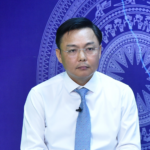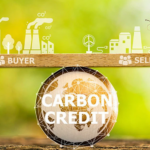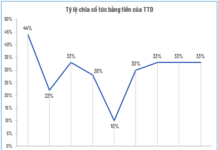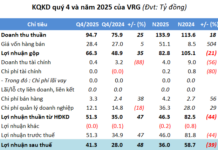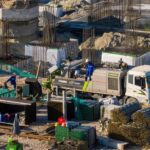300 Electric Buses and the First Milestone of Green Public Transportation
VinBus, a non-profit transportation company under the Vingroup umbrella, is currently operating 300 electric buses in Hanoi, Ho Chi Minh City, Phu Quoc, Hai Phong, and most recently, Nha Trang. With modern technology, these buses produce no smoke or emissions, contributing to reducing environmental pollution and providing a cleaner atmosphere for the cities.
While the number of VinBus vehicles in operation is small compared to the total of over 5,000 buses in Hanoi, Ho Chi Minh City, and Danang, it marks a significant milestone as the first electric bus produced in Vietnam and the first electric bus licensed to provide public transport services.
The introduction of these electric buses also signifies a shift in Vietnam’s public transportation, moving away from fossil fuel-dependent vehicles towards electrification.
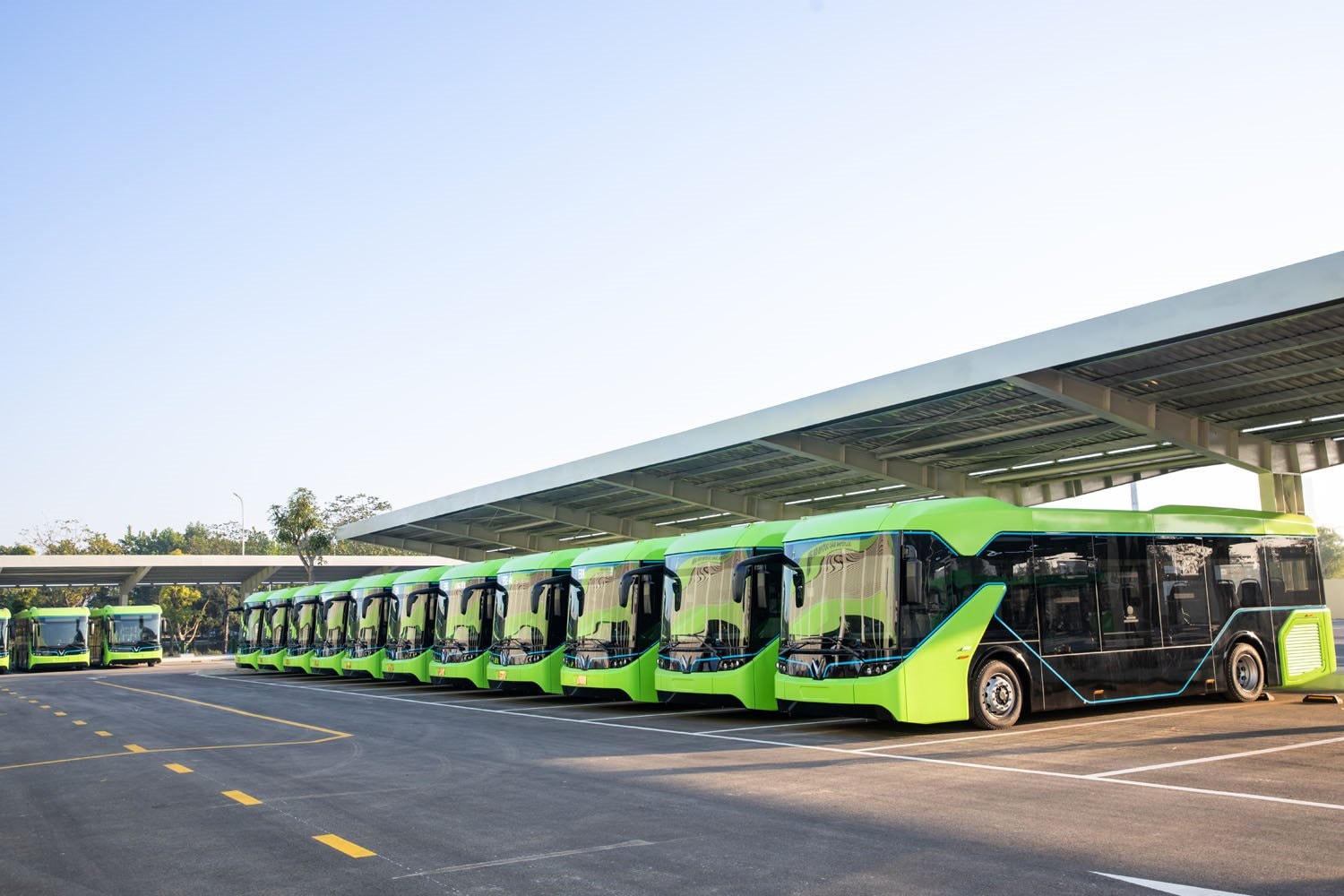
Vinbus operates 300 electric buses in major cities.
“Over 90 million passengers transported, and a reduction of 39,000 tons of CO2 emissions, equivalent to planting over 1.8 million urban trees—this is part of what VinBus has achieved in the three years since the first electric bus line began operating in Hanoi in late 2021,” said VinBus CEO Nguyen Cong Nhat at the “Green Bus – Journey of the Future” workshop in Hanoi.
VinBus has received high praise from its users, scoring 9.6/10 in an internal survey conducted in 2022. The usage rate of each VinBus trip has reached 38% – 48%, equivalent to the efficiency of other public bus systems, despite minimal marketing efforts and costs.
These electric buses cater to a diverse range of passengers. Among them, 80-85% of monthly pass holders are government employees and office workers—a group that previously accounted for only 25-30% of bus commuters.
“We believe that when public transportation meets the criteria for service quality, it will gradually attract customers like office workers who commute daily,” shared Mr. Nguyen Cong Nhat, CEO of VinBus.
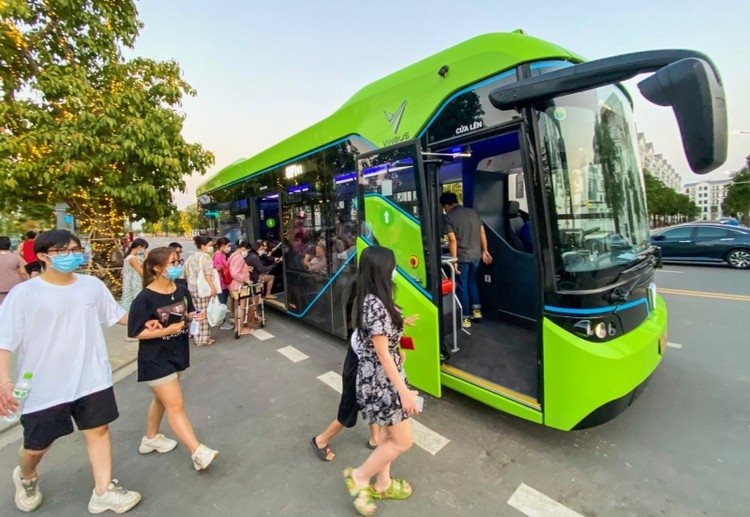
Electric buses have served 90 million passengers in 3 years.
“Through monitoring and evaluation, the electric bus lines operating for nearly three years have shown comprehensive effectiveness. Economically, the introduction of these lines has received the support of the people and passengers. During peak hours, the load factor exceeds 100%. The quality of service of the electric buses is also more advanced than that of conventional buses,” said Mr. Tran Dinh Tien, Head of the Operation Planning Department of the Hanoi Transport Development and Operation Center.
The First Electric Bus Line Serves a Public Interest Goal
Speaking about the decision to launch the first electric bus line and the scientific calculations behind Vingroup’s establishment of VinBus, Mr. Nguyen Cong Nhat, CEO of VinBus, shared the pressing issue of air pollution in major cities, climate change, and environmental pollution, which negatively impact the quality of life and health of the people.
Net Zero is no longer just a slogan but an urgent issue that needs to be addressed immediately. At COP26, Vietnam also committed to the international community to achieve net-zero emissions by 2050.
“As a company with the mission of ‘For a better life for everyone,’ Vingroup felt a sense of responsibility to contribute to the government’s goals. Additionally, with our modern VinFast automobile manufacturing capabilities, we could produce electric buses ourselves. VinBus was born out of this sense of service,” Mr. Nhat added.
To ensure VinBus’s smooth integration into people’s lives and meet their needs while maintaining harmony with all stakeholders, careful calculations and considerations were made to optimize the existing infrastructure.
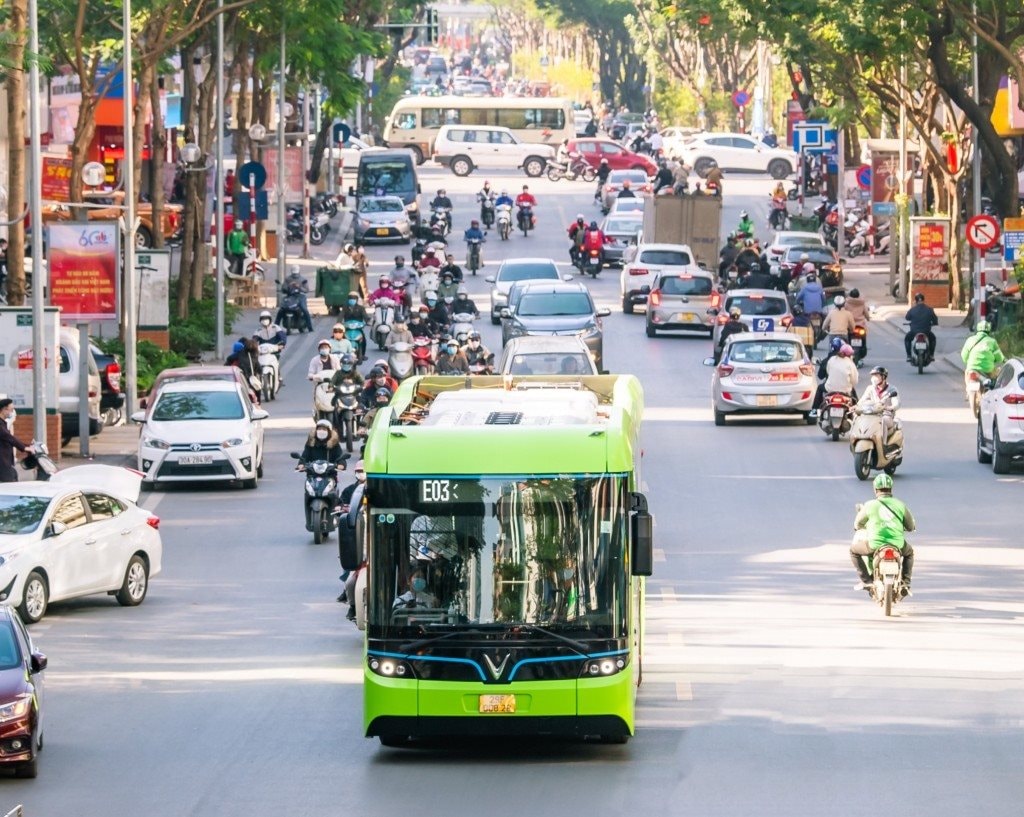
Hanoi currently has approximately 200 Vinbus electric buses in operation.
Mr. Nhat shared that in the early days of operation, VinBus faced challenges due to public prejudices against buses. Additionally, as electric buses were a new concept, there were no established policies for this type of transportation, including vehicle standards and infrastructure for charging stations.
“In reality, the electric bus lines were planned in 2019, but due to the Covid-19 pandemic, they only started operating in 2021. One significant obstacle was that this new concept in Vietnam, and while the city had a subsidy policy for traditional bus users, electric buses started from scratch, making it challenging to attract passengers initially,” Mr. Nhat explained.
Vingroup developed a proposal for the development of electric buses in Hanoi and Ho Chi Minh City and submitted it to the government, requesting a two-year pilot implementation to allow authorities to collect data and establish economic and technical norms and rates for electric buses.
Additionally, the lack of knowledge and experience with electric buses posed a barrier, as the technology and operational plans differed from those of traditional diesel buses. To overcome this, the company visited and learned from international counterparts to organize VinBus’s operational system effectively.
“Up to this point, the system has been running smoothly, both in terms of operational processes and human resources,” Mr. Nguyen Cong Nhat shared.
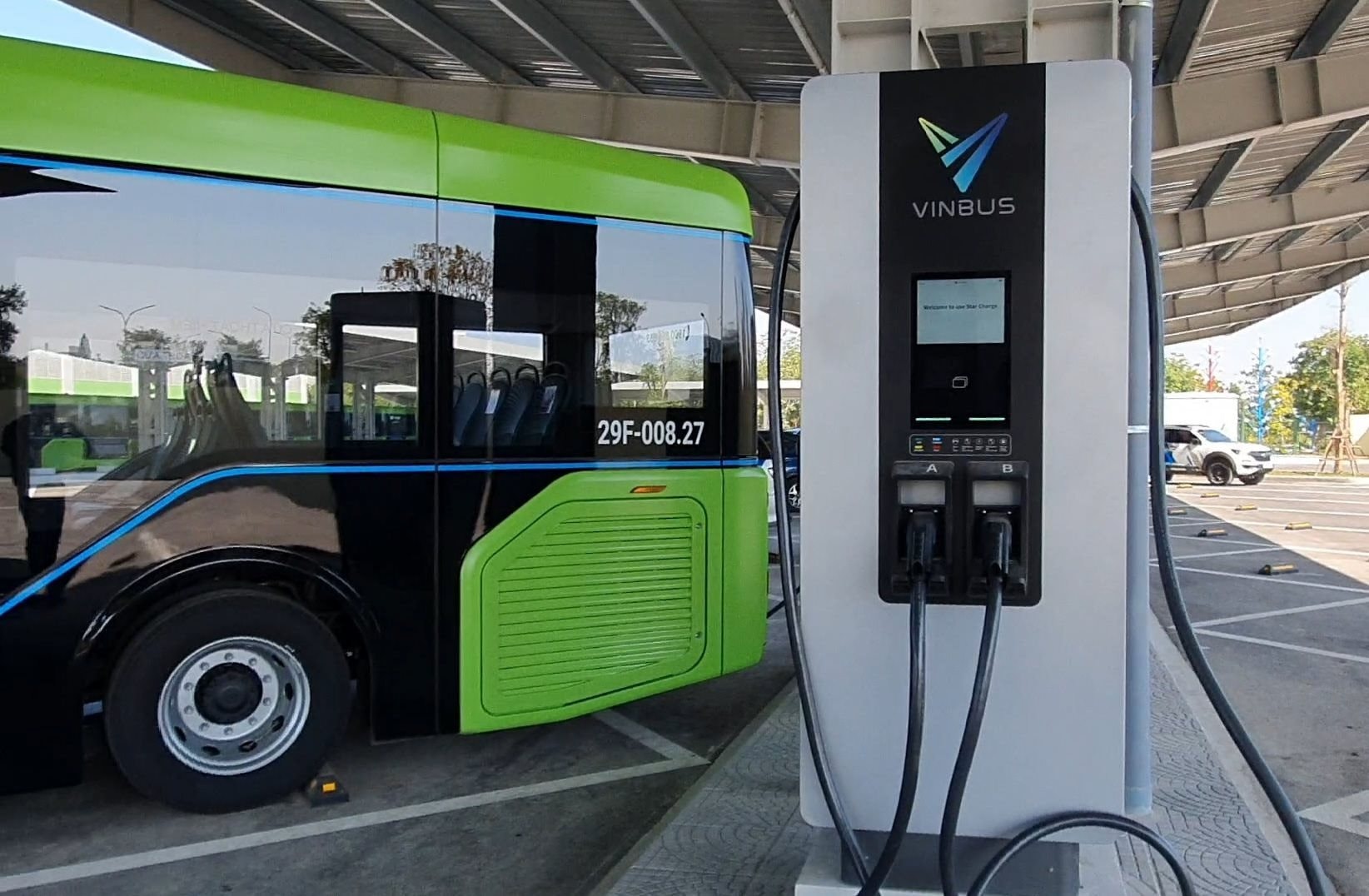
Vinbus’s charging station system.
Currently, Hanoi has over 2,000 subsidized buses in operation, but only 277 use clean energy, including 139 CNG buses and 138 electric buses. Clean energy buses account for 13.6% of the total bus network. Additionally, over 1,200 buses meet the Euro IV emission standard or higher, while 1,575 vehicles still use diesel fuel and need replacement.
The benefits of green and clean transportation are evident and represent the future development trend. However, the challenge lies in the high investment cost of electric and green energy vehicles, which is 2-4 times higher than that of diesel buses. This, along with infrastructure and charging station issues, presents a significant hurdle for businesses.
According to Mr. Nguyen Cong Nhat, while the initial investment cost for electric buses is high, their operation, maintenance, and other expenses are significantly lower than diesel-fueled vehicles.
“Apart from financial considerations, electric buses offer environmental and public health benefits. These factors should be weighed when transitioning to electric buses,” emphasized the CEO.
To accelerate the shift from fossil fuel-based buses to electric ones, Mr. Nhat suggested that the government implement robust mechanisms to encourage and motivate businesses to make the change. These could include developing and issuing norms for electric buses (covering various bus sizes), providing interest rate support for vehicle and charging infrastructure investments, and prioritizing companies with early electric bus adoption plans in the market.
The City of Rails: An Opportunity to Embrace
High-speed rail lines are not only a particularly important project for the transport sector but also open up a multitude of opportunities for development, including urban system planning. This project is a game-changer, offering a chance to revolutionize the way we travel and the potential to transform our cities. With speeds that rival air travel, this rail network will connect communities, boost economies, and offer a sustainable and efficient transport solution. The possibilities are endless with high-speed rail, and it is an exciting prospect for all involved.
The Road to Carbon Market: Vietnam Aims for 2029 Launch
The Vietnamese government has unveiled an ambitious plan with the draft proposal for the ‘Establishment and Development of a Carbon Market in Vietnam’. This proposal outlines a pilot phase for a nationwide carbon market from 2025 to 2028, with an official launch in 2029. The market will facilitate the trading of carbon credits, with an initial focus on nationally-certified carbon credits, and will gradually expand to include a broader range of participants and credit types. This marks a significant step forward in Vietnam’s journey towards a more sustainable future, as the country actively seeks to reduce its carbon footprint and encourage environmentally conscious practices.
Sure, I can assist you with that.
## Proposing a New Set of Criteria for Evaluating and Developing Green Projects: MSB’s Initiative for a Sustainable Future.
On September 21, at the Standing Government Conference on solutions to contribute to the country’s socio-economic development, chaired by the Prime Minister, MSB Chairman Tran Anh Tuan and CEO Nguyen Hoang Linh attended and made several proposals to boost credit growth across the system, improve banking performance, and promote economic recovery, in line with the State’s general policy.

